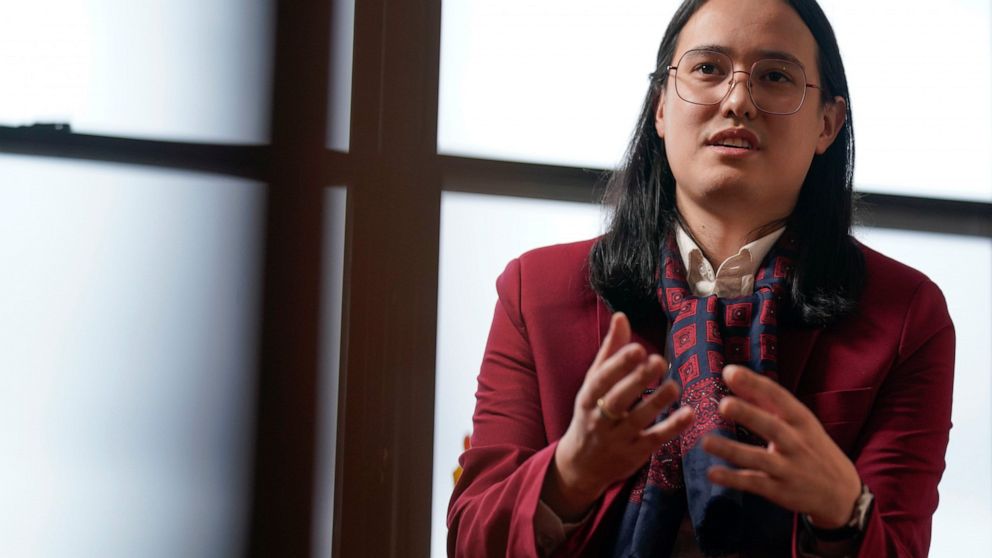Face scanner Clearview AI aims to branch out beyond police
A controversial facial recognition company that’s built a massive photographic dossier of the world’s people for use by police, national governments and the Ukrainian military now plans to offer its technology to banks and other private businesses
NEW YORK — A controversial facial recognition company that’s built a massive photographic dossier of the world’s people for use by police, national governments and — most recently — the Ukrainian military is now planning to offer its technology to banks and other private businesses.
Clearview AI co-founder and CEO Hoan Ton-That disclosed the plans Friday to The Associated Press in order to clarify a recent federal court filing that suggested the company was up for sale.
“We don’t have any plans to sell the company,” he said. Instead, he said the New York startup is looking to launch a new business venture to compete with the likes of Amazon and Microsoft in verifying people’s identity using facial recognition.
The new “consent-based” product would use Clearview’s algorithms to verify a person’s face, but would not involve its ever-growing trove of some 20 billion images, which Ton-That said is reserved for law enforcement use. Such ID checks that can be used to validate bank transactions or for other commercial purposes are the “least controversial use case” of facial recognition, he said.
That’s in contrast to the business practice for which Clearview is best known: collecting a huge trove of images posted on Facebook, YouTube and just about anywhere else on the publicly-accessible internet.
Regulators from Australia to Canada and Italy have taken measures to try to stop Clearview from pulling people’s faces into its facial recognition engine without their consent. So have tech giants such as Google and Facebook. A group of U.S. lawmakers earlier this year warned that “Clearview AI’s technology could eliminate public anonymity in the United States.”
Despite opposition from lawmakers, regulators, privacy advocates and the websites it scrapes for data, Clearview has continued to rack up new contracts with police departments and other government agencies. In the meantime, its growing database has helped Clearview’s artificial intelligence technology learn and grow more accurate.
One of its biggest known federal contracts is with U.S. Immigration and Customs Enforcement, particularly its investigative arm which has used it to track down both the victims and perpetrators of child sexual exploitation. Clearview in March also started offering its services for free to the Ukrainian military, in part to help identify dead Russian soldiers using Clearview’s repository of about 2 billion images scraped from Russian social media website VKontakte.
“They’ve been able to identify dead bodies, even with facial damage,” Ton-That said Friday.
The official minutes from a March 17 hearing in a Chicago federal court said that Clearview AI was “considering selling the app platform to other entities,” citing one of the lawyers who’s been defending the company in a case involving alleged violation of an Illinois digital privacy law.
The minutes also said the “sale of Clearview’s app” would be discussed further once the company discloses more details to the plaintiffs. Illinois’ Biometric Information Privacy Act allows consumers to sue companies that don’t get permission before harvesting data such as faces and fingerprints.
Ton-That said the minutes incorrectly relayed what the company was trying to tell the judge about potentially expanding its business beyond law enforcement uses.
“We let the court know we’re exploring this idea,” he said Friday, noting the company’s previous assertions that it was only selling its services to law enforcement.
Asked about future commercial applications during an interview with the AP in late February, Ton-That emphasized his company’s ongoing focus on police work.
“We’re really focused on law enforcement right now,” he said, describing how the company’s mission had evolved from commercial applications into helping to solve crime.
“We looked at all different kinds of use cases: building security, ID checks, even hotels, hospitality,” he said. “But when we gave this to law enforcement, we saw such amazing success right away where they could ID so many victims of crime or perpetrators of it that it was a kind of a no-brainer at that point to really focus on that kind of use case.”
He added at the time that if the company shifted to other uses, it would let the public and courts know about it.
———
O’Brien reported from Providence, Rhode Island.
![]()


